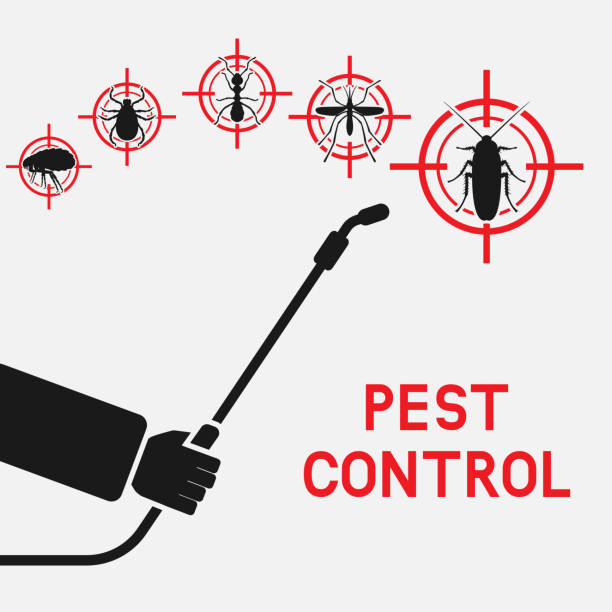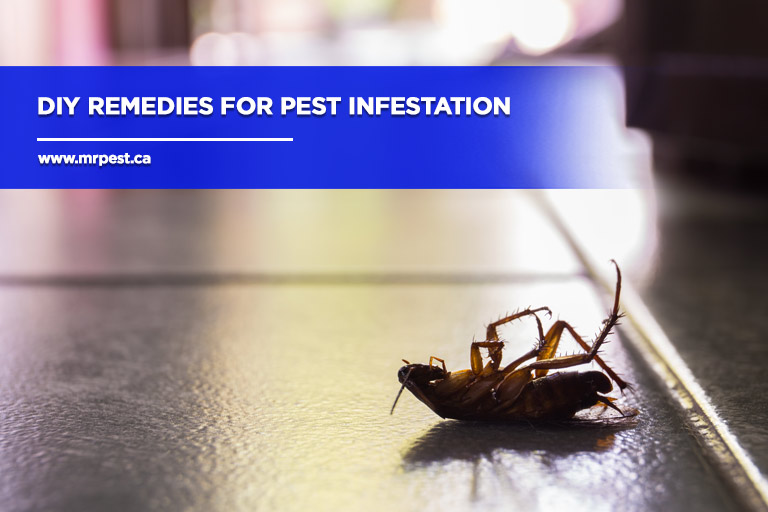Top Coquitlam Pest Control Solutions for a Rodent-Free Home
Top Coquitlam Pest Control Solutions for a Rodent-Free Home
Blog Article
Safe and Trusted Insect Control for Lasting Defense
The importance of secure and reputable bug control can not be overemphasized, especially in an era where ecological concerns are extremely important. Efficient bug administration calls for a diverse method that balances ecological integrity with the demand for effective insect suppression. By discovering green services and integrated insect management approaches, homeowners can attain long-term protection versus intrusive varieties while safeguarding beneficial ecosystems. The subtleties of these techniques may not be promptly clear, triggering a more detailed assessment of the practices that can lead to sustainable parasite control results. What actions can be taken to guarantee both safety and efficiency in pest management?
Understanding Parasite Control Methods
Bug control encompasses a range of approaches intended at handling and eliminating undesirable bugs and rodents that can intimidate both wellness and building. Understanding these methods is critical for efficient pest monitoring.
The main categories of parasite control methods include mechanical, biological, and chemical approaches. Mechanical approaches involve physical barriers and catches to stop insect access and capture unwanted varieties. Making use of screens on windows or employing sticky traps can considerably lower parasite populations without introducing unsafe compounds - exterminator coquitlam.

Chemical parasite control is typically one of the most identified method, using chemicals to remove pests. These chemicals can be reliable however need to be made use of with care to stay clear of damaging results on non-target species and the setting.
Advantages of Eco-Friendly Solutions
How can eco-friendly remedies change parasite control practices? The fostering of environmentally friendly parasite control techniques supplies many benefits, considerably improving the effectiveness and safety of bug monitoring.

An additional advantage is the positive influence on neighborhood biodiversity. Eco-friendly services are developed to target particular bugs while preserving helpful pests and wild animals, advertising a balanced ecosystem. This approach straightens with the growing customer need for lasting practices, improving the track record of bug control carriers.
Integrated Pest Management Strategies
The application of environment-friendly services naturally leads to the fostering of Integrated Pest Management (IPM) strategies, which additionally boost insect control effectiveness. IPM is a holistic approach that incorporates numerous methods to take care of bug populations while minimizing ecological influence. This method emphasizes using biological, social, mechanical, and chemical controls, ensuring a lasting and balanced technique of bug management.
One fundamental facet of IPM is the comprehensive analysis of parasite activity and environmental problems. By keeping an eye on pest populations and determining their life process, specialists can execute targeted interventions that interior termite treatment disrupt the pest's environment or lifecycle, reducing reliance on chemical pesticides. Furthermore, social methods such as crop turning and habitat manipulation can dramatically reduce bug facility and reproduction.
Another important part is using organic control agents, such as valuable pests or microorganisms, which can naturally subdue insect populations. When chemical applications are necessary, IPM prioritizes making use of low-risk pesticides and uses them uniquely, reducing exposure to non-target organisms and human beings.
Incorporating IPM strategies not only boosts insect control performance but additionally promotes a safer environment, lining up with the expanding need for sustainable practices in insect monitoring.
Safe Practices for Property Owners
Understanding the value of safe methods in pest control can encourage homeowners to efficiently take care of bug issues while securing their wellness and the setting. Implementing non-toxic approaches and safety nets is vital in decreasing direct exposure to harmful chemicals.
House owners should initially assess their environment for conditions that bring in bugs, such as standing mess, food, and water waste. Routinely cleaning and securing access points can discourage bugs from attacking the home. Utilizing natural deterrents, such as important oils or diatomaceous earth, can supply efficient choices to chemical pesticides.
When chemical treatments are necessary, home owners must opt for items that are particularly labeled as safe for domestic usage. redirected here It is necessary to follow application guidelines thoroughly to stay clear of overexposure. Utilizing targeted therapies in locations where insects are recognized, instead than covering spraying, can dramatically decrease chemical usage.
Finally, preserving open communication with insect control experts is crucial. Homeowners need to ask about the security of products used and request green choices whenever possible. By taking on these secure methods, homeowners can develop a healthier living environment while effectively taking care of parasite problems.

Tips for Long-Term Defense
Developing a pest administration method that highlights long-term protection can considerably improve the efficiency of the risk-free practices formerly discussed. To accomplish this, property owners should implement normal evaluations of their building, concentrating on hidden locations such as attic rooms, cellars, and crawl spaces. Early detection of pest activity is vital in protecting against infestations from taking hold.
Furthermore, preserving a clean environment is important. This consists of appropriate food storage space, promptly cleansing spills, and routinely throwing away rubbish. These practices lower attractants that attract insects into the home. In addition, sealing entrance factors, such as cracks around doors and windows, can properly block prospective insect gain access to.
Landscaping should additionally be taken into consideration; keeping plants trimmed and maintaining a range in between greenery and the home decreases hiding spots for parasites. Using all-natural deterrents, such as essential oils or diatomaceous earth, can further inhibit invasions without resorting to extreme chemicals.
Lastly, collaborating with a specialist parasite control service for routine examinations can provide an additional layer of safety and security. These specialists can provide customized recommendations and progressed treatments, making sure that your home remains secured versus insects in the lengthy term.
Conclusion
In final thought, safe and trusted pest control needs a complex approach that highlights environmentally friendly approaches and incorporated insect administration. By implementing natural deterrents, performing routine examinations, and preserving appropriate sanitation, official site residential or commercial property proprietors can substantially decrease pest populations while securing advantageous bugs and the setting. Collaboration with expert bug control services enhances the effectiveness of these strategies, ensuring customized services that offer long lasting defense and assurance against future infestations.
Reliable parasite management needs a multifaceted strategy that balances eco-friendly integrity with the need for reliable insect suppression. The fostering of eco-friendly bug control techniques offers many benefits, dramatically improving the performance and safety of insect monitoring.The execution of eco-friendly solutions naturally leads to the fostering of Integrated Parasite Administration (IPM) techniques, which additionally improve bug control effectiveness. exterminator coquitlam. By keeping an eye on parasite populaces and recognizing their life cycles, specialists can apply targeted interventions that interfere with the parasite's environment or lifecycle, minimizing reliance on chemical pesticides.In verdict, secure and trusted parasite control calls for a complex technique that emphasizes green techniques and integrated bug management
Report this page